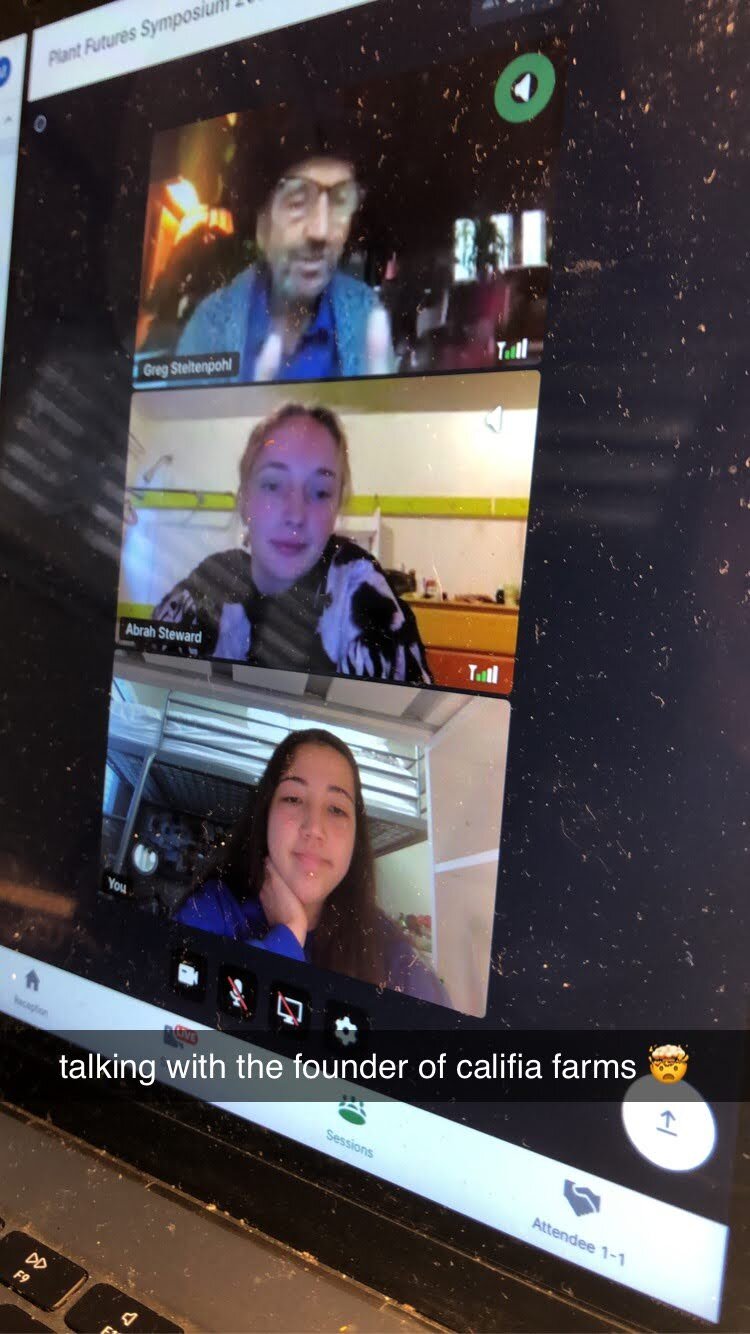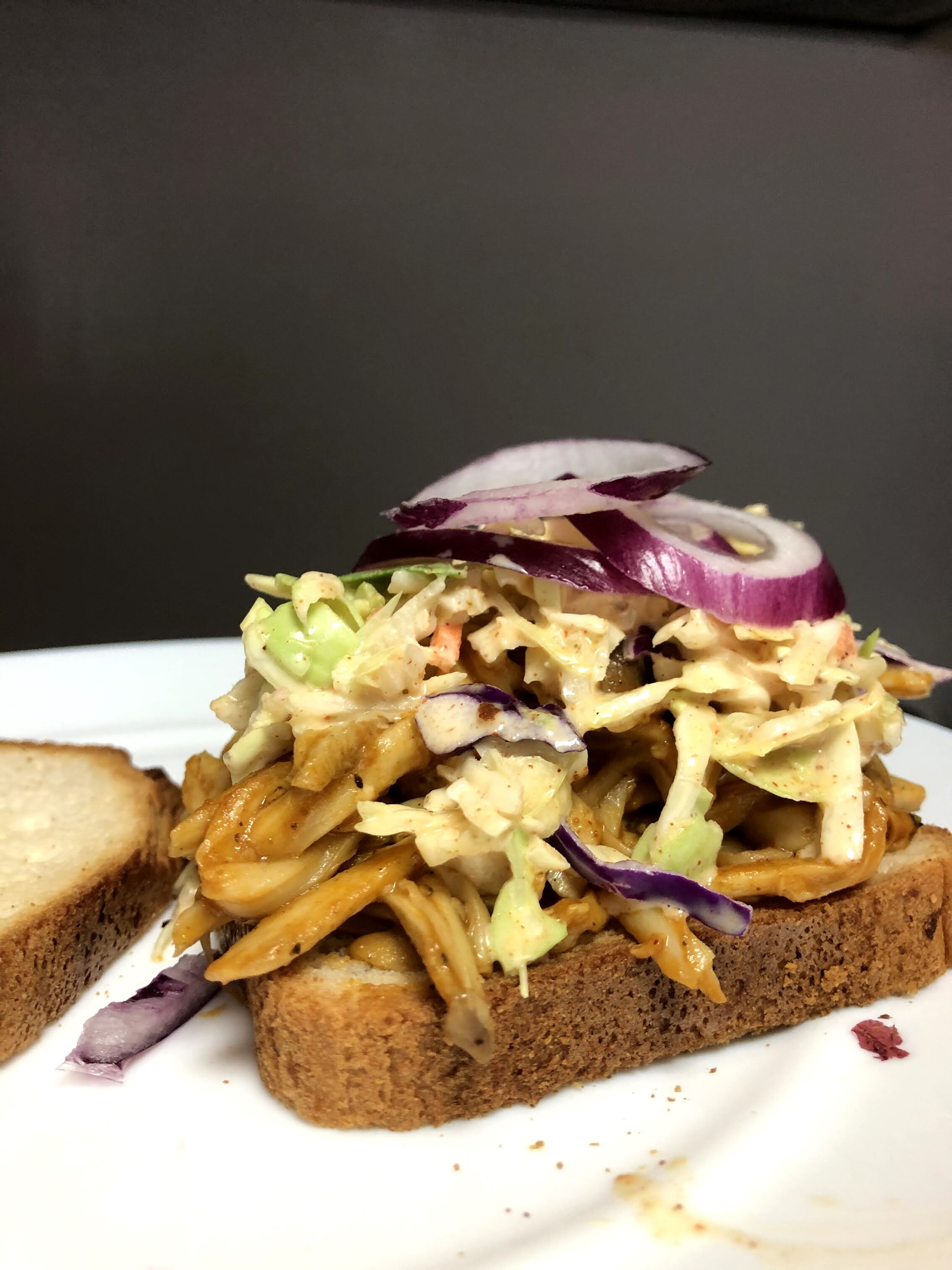7 Things I Learned from UC Berkeley's Inaugural Plant Futures Symposium
I kicked off the first weekend back of my spring semester attending UC Berkeley’s Inaugural Plant Futures Symposium. The day was filled with compelling speeches and panels by distinguished speakers at the forefront of innovations in food systems, with an emphasis on plant-forward solutions, as well as vegan cooking demos and the opportunity to network in smaller breakout sessions with the professionals themselves. Here are seven things I learned from UC Berkeley’s inaugural Plant Futures Symposium.
Humans are not meant to eat animal products.
“For plant-based mammals, the only time they consume animal protein is when they are in a rapid growth phase.” –Dr. Milton Mills. For example, babies have more lactase because they need it to break down the lactose in their mother’s milk. However, after weaning, this enzyme is not necessary. Lactose-intolerance is completely normal! This panel on health and nutrition was easily my favorite session from the entire symposium. I’m studying nutrition science dietetics and Dr.Mills’ talk connected directly with what I have been learning in my science classes.
You don’t need any fancy products to eat plant-based.
To many people veganism seems untouchable, unappealing, “white, elitist, and expensive.” –Nina Gheighman. You don’t need $7 vegan cheeses or $15 meat-less hamburgers. Beans, legumes, tofu, and root vegetables are much cheaper, plant-based staples. The key word here is products–if you buy less processed foods, i.e. fruits, vegetables, and whole grains, naturally they will be less expensive. In fact plant-based eating is common in and has its roots in Africa; most people who are plant-based today are POC women.
Short Chain Fatty Acids are the biggest thing in nutrition we should be talking about.
I did not know what the gut microbiome was and what an integral role it plays in our digestive health until 2019 when I took a Food, Culture, and the Environment class. Fiber is the main source of food for our gut microbiome, and, from fiber, the microbes produce short chain fatty acids that play an important role in the gut-brain connection. “If you restrict certain plants in your diet, you restrict or eliminate those microbes in your gut that eat that specific fiber. “ –Dr. Bulsiewicz. Dr. Bulsiewicz emphasized the importance of how a more diverse diet translates to a more diverse microbiome.
I actually have hypothyroidism and was told I had leaky gut which was linked to my gluten-intolerance. Looking back, I remember eating lots of pastries and carbs my freshman year of college and not enough variety of fruits and cooked vegetables, as the options were limited in the dining halls. I sometimes wonder if this contributed to my leaky gut (when you don’t feed your gut microbiome a diversity of foods, it begins to eat through your colon’s lining) as well as consuming a LOT of gluten which also increases intestinal permeability.
How to Cook Crispy Mongolian Tofu
Chef George is a fellow UC Berkeley student and food influencer known for his vegan taiwanese recipes! I had the chance to cook along with him during a virtual cooking session and made a tasty tofu dish! All the times I’ve tried cooking different tofu recipes, they’ve all turned out bland, but George’s Crispy Mongolian Tofu recipe was delicious and bursting with flavor!
We need a mandate for plant-based food where the government serves meals.
The government subsidizes corn just to be used for livestock feed and production of high fructose corn syrup as well as milk which puts plant-based foods at a disadvantage. As long as there’s no mandate where the government serves food (cafeterias, colleges, grade schools) then those menus will continue to be unhealthy and include many processed foods, meat, and dairy products. I agree with the “Capital and its Expectations” panelists (Dan Malek, TK Pillan, Lisa Feria) that we need a government mandate to combat these systems already put in place and also a “mandate for children to be introduced to plant-based options”. However, “plant-based products shouldn’t just be a replacement for animal-based products–they should be better.”
“Business is not just about leading with a product or solution; it’s about how you evolve into a leader.” –Miyoko Schinner
Miyoko of Miyokos Creamery emphasized the importance of leadership in business. The difference between a leader and a follower is that a leader sells their mission and a follower just sells the product. A good leader will “keep people on track, happy, and inspired, create a central culture, and pull the company together under a single vision.” –Schinner. Because of these leadership principles, businesses like Miyoko’s Creamery have a strong company culture. Miyoko’s mission is to “create the blueprint for the animal-free dairy food system of tomorrow, for the urgent salvation of our planet and all that we share with it.”
“We need to pull out of the business as usual model through more sustainable production and consumption.” –Greg Steltenpohl
The dairy industry is just as bad for the environment as the meat industry. Cows produce methane, a greenhouse gas, they pollute the water supply with nitrogen contained in their manure, and require gallons and gallons of water. Califia Farms produces a wide variety of plantmilks (my favorite is the vanilla almond milk) and is a key player in the plant-based revolution. “The food system itself must be regenerated and returned to its original nourishing purpose” –Steltenpohl. America’s normalization of the SAD (Standard American Diet) is the number one cause of death. In the United States…40% of adults have obesity, which can put them at risk for heart disease, type 2 diabetes, and some cancers; obesity costs the US health care system $147 billion a year (1). The importance of diet in preventing disease is so important and will save healthcare costs associated with chronic illnesses in the long run. By partnering with the power of plants, Califia Farms implements a plant-forward strategy that benefits planet, personal, and public health.
Overall, attending the Plant Futures Symposium was fun and engaging, and I would recommend anyone who is interested in the learning more about the people taking strides in plant-based food and sustainability initiatives to attend next year!




